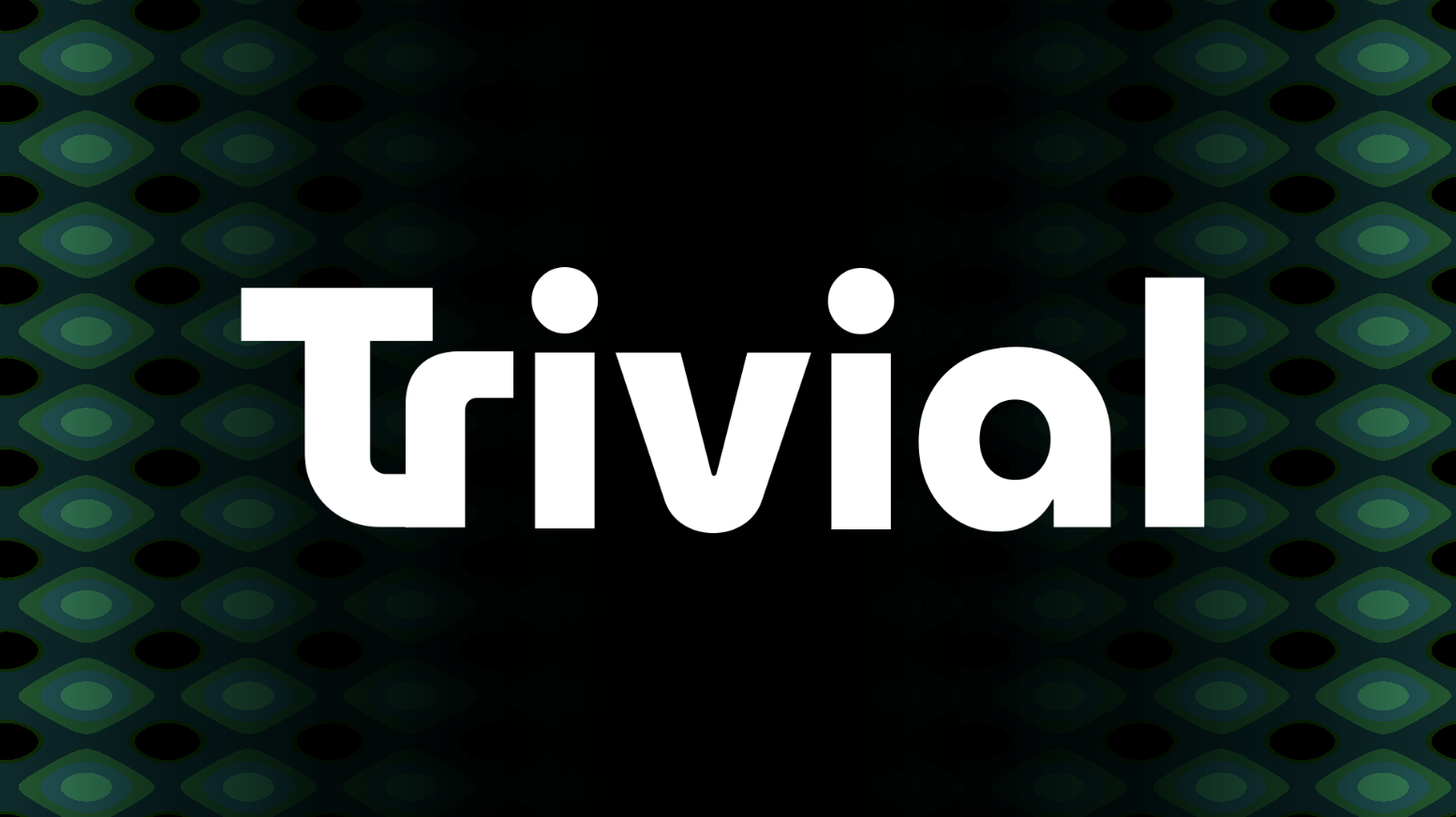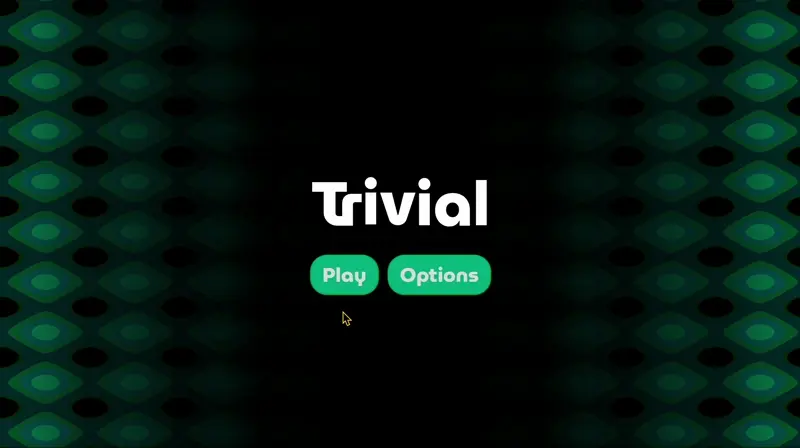Game Sprint 1: Trivial
June 1, 2025

Two weeks down, fifty to go.
I'm very pleased to announce that Trivial, my first Game Sprint game is out on playpause.itch.io! This trivia roguelike was inspired by all the amazing roguelike deckbuilders I've been playing and seeing lately, as well as a desire to bring new gameplay and strategy to trivia, a format I love.
I wanted to capture the nostalgic feeling of old trivia gameshows, while also opening the playing field to those who might be less confident in their trivia knowledge with modifiers that invite new modes of play.
To evoke that feeling, I wrote a shader inspired by old versions of The Price is Right that emulates the gaudy 70s game show aesthetic, changing dynamically based on whether you guess correctly.

New strategies, like getting modifiers that benefit from incorrectly answering questions and multiplying your score into the negatives only to multiply it by another negative number to flip it back, or only allowing certain categories of questions to play to your strengths, remove some of the frustration of trivia, while still keeping the excitement of getting answers right.
Trivial isn't the first roguelike trivia game — for that I have to give a huge shoutout to Trivia Deal — though surprisingly I think it may be the second. I have yet to play Trivia Deal, nor did I know about it before writing this post, but I wanted to shout them out and urge you to play their demo and wishlist their game on Steam if you enjoy Trivial and trivia games.
This first Sprint went far better than I could have hoped — I never fell behind, despite giving myself numerous days off and not crunching or engaging in any unhealthy work-life habits, and development went very smoothly. I've now built a basic set of primitives I'll adapt for future Sprints, so I'm confident the next games will go even better. That being said, I have a few aspects I've identified to work on:
- Write more, smaller feature tickets
When I planned my game two weeks ago, many of my feature tickets were large and vague. As I'm working alone, I felt fine writing simple tickets to get them out of the way, but that left me not having a lot of clarity on finishing many of my tickets.
For example: Improve UX — though this ticket had detail inside of it, its large size (overhauling the UX) meant it stayed in my "in progress" column for multiple days as I switched to other, smaller tasks before finishing the many aspects of the UX I needed to work on.
For my next Sprint, I will write tickets that instead ask me to write a set of tickets for features once I know what they'll look like. Game Sprints are playtest-driven, so knowing what exactly those features should look like is difficult in advance, but having those tickets that force planning when I'm able will be a big help.
- Finish all game functionality prior to refining UI
This is my one major regret from this Game Sprint — as I wanted to get Trivial in the hands of my playtesters as fast as possible, I started working on the UI before building the round system. This meant a lot of task switching between UI and game logic, which slowed my progress and added unnecessary stress.
- Build in breaks
I took the weekend off after the first Sprint week, partly because I felt as though I was ahead of schedule, but also partly because I started to stress about whether I'd be able to pull off a year of Game Sprints having just started. Though I didn't work on the game that weekend, I felt guilty the entire time and worried about whether I was sabotaging myself.
I realize now that taking time off was key to avoiding crunch and getting too stressed, but at the time I still felt guilty. I'll now be building in a mandatory break that first weekend, which I believe will also help me have fresh eyes going into the playtest at the start of the second week of the Game Sprint.
- Maintain an organized file tree from day one
My previous Godot games have been quite small, so they've been easy enough to manage solely with folders for scripts, scenes, and resources. Despite thinking I might be fine doing the same for Trivial, I realized after my tenth script how much larger in scope this project was.
I ended up making some subfolders for certain scripts and resources, but for my next project I will start with subfolders for certain types of scenes and scripts to avoid an inconsistent and harder to navigate hierarchy.
I'm excited for you to try Trivial and can't wait to hear what you think!
See you in two weeks for my second Game Sprint game: Stack Rush!